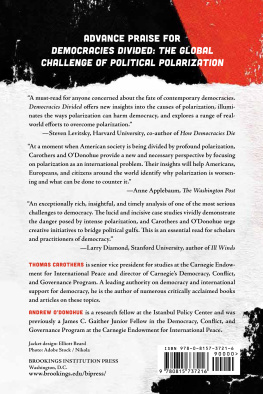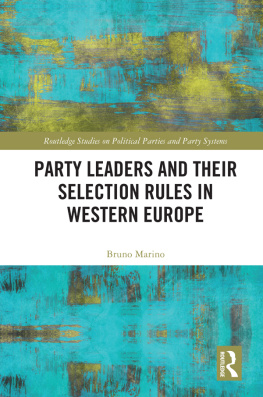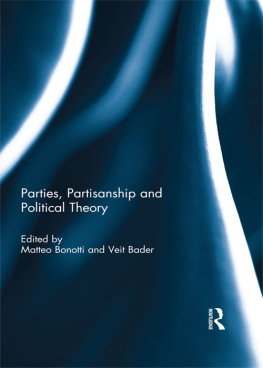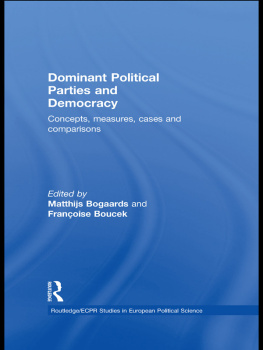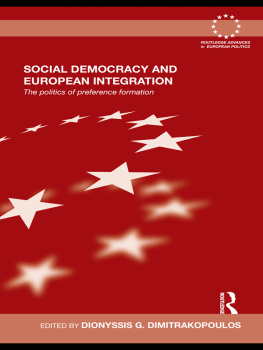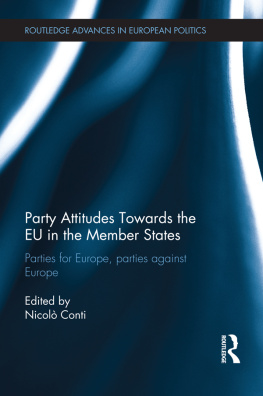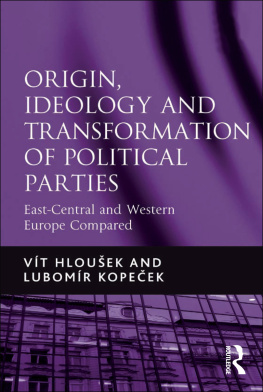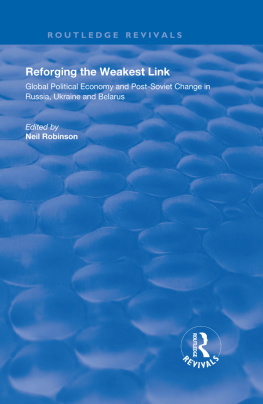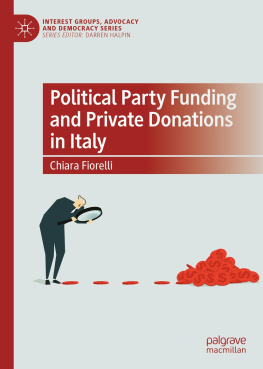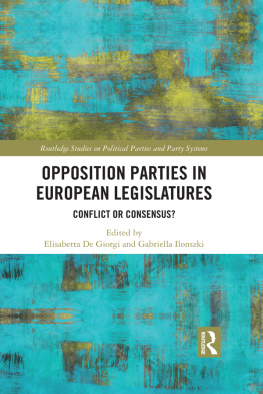Other books by the Democracy and Rule of Law Project
of the Carnegie Endowment for International Peace
Promoting the Rule of Law Abroad: The Problem of Knowledge
Thomas Carothers
Uncharted Journey: Democracy Promotion in the Middle East
Thomas Carothers and Marina Ottaway, editors
Critical Mission: Essays on Democracy Promotion
Thomas Carothers
Aiding Democracy Abroad: The Learning Curve
Thomas Carothers
Democracy Challenged: The Rise of Semi-Authoritarianism
Marina Ottaway
Open Networks, Closed Regimes: The Impact of the Internet on Authoritarian Rule
Shanthi Kalathil and Taylor C. Boas
Funding Virtue: Civil Society Aid and Democracy Promotion
Marina Ottaway and Thomas Carothers, Editors
The Third Force: The Rise of Transnational Civil Society
Ann M. Florini, Editor
Assessing Democracy Assistance: The Case of Romania
Thomas Carothers
To read excerpts and to find more information on these and other publications from the Carnegie Endowment, visit www.CarnegieEndowment.org/pubs.

2006 Carnegie Endowment for International Peace. All rights reserved.
No part of this publication may be reproduced or transmitted in any form or by any means without permission in writing from the Carnegie Endowment.
Carnegie Endowment for International Peace
1779 Massachusetts Avenue, N.W., Washington, D.C. 20036
202-483-7600, Fax 202-483-1840
www.CarnegieEndowment.org
The Carnegie Endowment for International Peace normally does not take institutional positions on public policy issues; the views and recommendations presented in this publication do not necessarily represent the views of the Carnegie Endowment, its officers, staff, or trustees.
To order, contact:
Hopkins Fulfillment Service
P.O. Box 50370, Baltimore, MD 21211-4370
1-800-537-5487 or 1-410-516-6956
Fax 1-410-516-6998
Library of Congress Cataloging-in-Publication data
Carothers, Thomas, 1956-
Confronting the weakest link : aiding political parties in new democracies / Thomas Carothers.
p. cm.
Published in the Democracy and Rule of Law Program of the Carnegie
Endowment for International Peace.
Includes .
ISBN-13: 978-0-87003-225-7
ISBN-13: 978-0-87003-224-0
ISBN: 978-0-87003-282-0 (e-book)
1. Political parties--Developing countries. 2. Democratization--Developing countries. 3. Political corruption--Developing countries. 4. Developing countries--Politics and government. I. Title.
JF60.C38 2006
324.209172'4--dc22 2006025891
Contents
Jessica T. Mathews
D emocracy faces daunting challenges everywhere that it is being pursued, but especially in the approximately 100 countries that have made up democracys Third Wave.Ethnic, religious, and other sectarian conflicts, illiberal leaders elected by citizenries angry about corruption and insecurity, resurgent authoritarian structures that were never fully dismantled in abrupt transitions, windfall oil and gas revenues emboldening strongmen leadersthe threats to democracy only seem to grow. Diverse though it is, the global landscape of attempted democratization is marked by a ubiquitous institutional deficiency: troubled political parties that command scant respect from their citizens due to the strong perception that they are corrupt, self-interested, unprincipled, ideologically incoherent, and focused only on near-term electoral goals. Given that political parties are supposed to play key functions in democracy, their debilitated state in most new democracies is a sign of serious trouble. Some major questions stand out in this regard. Above all, why are political parties so problematic in countries attempting democratization and why are their problems so strikingly similar in such different regional and national contexts?
The worrisome state of political parties around the world has not escaped the attention of the international democracy promotion community. An evergrowing number of Western party foundations and institutes as well as multilateral organizations are actively engaged in trying to help strengthen and reform parties around the world. Although these efforts date back for decades and are carried out in the open, they have until now been the subject of remarkably little study. As a result, major questions abound here as well. For example, does aid for political parties really help and what is being learned about how to make it more effective?
In this pathbreaking book, Thomas Carothers, director of the Carnegie Endowments remarkably successful Democracy and Rule of Law Project, and vice president for international politics and governance, answers these and other fundamental questions both about the state of political parties in the world and the effectiveness of international aid for parties. Artfully combining extensive field research in aid-receiving countries with numerous interviews in donor capitals and serious study of the scholarly literature on comparative political party development, Carothers paints a nuanced but clear portrait of this complex landscape. He identifies the key causal factors underlying the common shortcomings of parties in new democracies and shows how the best intentions of aid providers are often frustrated in the face of hard-to-change structural conditions. Although his analysis is cautionary, he identifies areas of innovation in party aid and argues that a second, strengthened generation of party aid is potentially emerging in the wake of a first, weaker one.
Confronting the Weakest Link is a vital contribution to the extraordinary body of work on democracy promotion that Carothers has produced in the past fifteen years, writings that have effectively defined a field of study where none existed before. As with all of his work, this book will spark heated debates, provoke policy actors to ask basic questions about what they do, and prompt further studies that take up the many leads he opens up. In short this book will do precisely what first-rate policy analysis should do. It represents the essence of what the Carnegie Endowment seeks to offer the international policy community through its work in the United States and, increasingly, around the world.
Jessica T.Mathews
President
Carnegie Endowment for International Peace
I have accumulated many debts of gratitude in researching and writing this book. First and foremost I benefited enormously from the willingness of hundreds of people in my case study countries as well as in various Western capitalspoliticians, party activists, party aid representatives, diplomats, political analysts, scholars, journalists, and othersto take time out of their busy schedules to talk with me and answer my endless questions about political parties and political party assistance. I received help with the logistical arrangements for my field research from many people but especially from the following: Csar Micheo and Eduardo Nuez in Guatemala; Stephanie Flynn, Tom Garrett, Mareska Mantik, Paul Rowland, and Benny Subianto in Indonesia; Sarah Johnson, Grard Latulippe, and Kenza Aquertit Mzibri in Morocco; Sharon Carter and Jan Nico van Overbeeke in Mozambique; Cristian Ghinea and Alina Mungiu-Pippidi in Romania; and Lilia Shevtsova in Russia.


